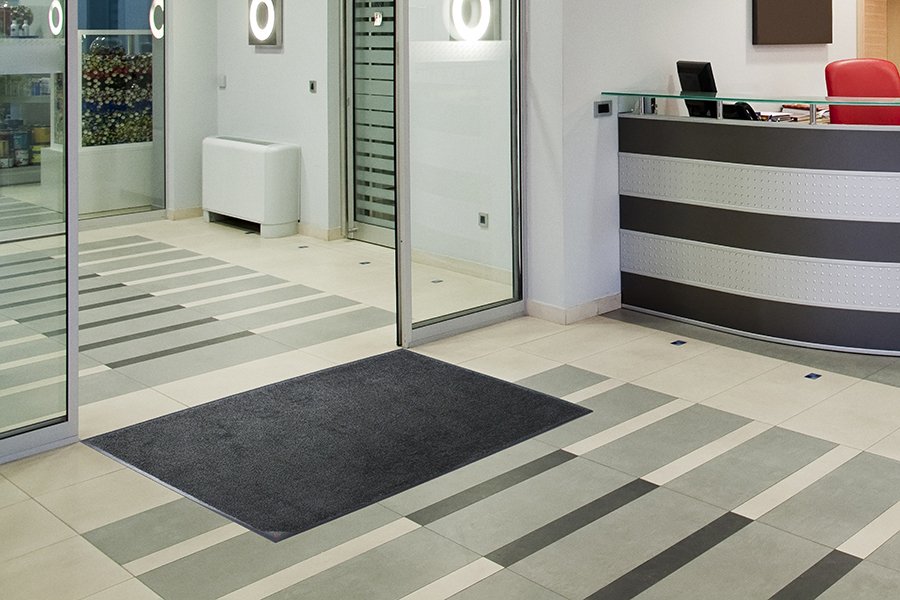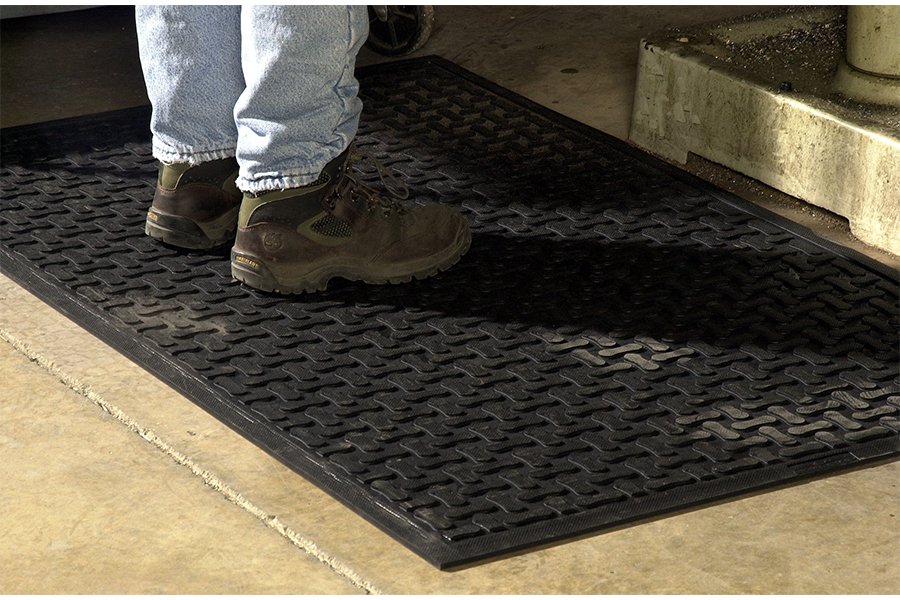
Blog
Vinyl Tile vs. Rubber Flooring: Pros and Cons for Industrial Workspaces

Ever walked across a factory floor and noticed that weird squeaky-slip feeling under your boots? Yeah, that’s the wrong industrial flooring at work.
Choosing between vinyl tile and rubber flooring isn’t just some minor detail—it’s a decision that impacts worker safety, maintenance budgets, and operational efficiency every single day.
I’ve spent 15 years helping facility managers compare industrial flooring options, and I’ve seen the right choice save companies thousands in prevented accidents and maintenance costs.
By the end of this guide, you’ll understand exactly which flooring solution offers the best value for industrial workspaces based on your specific environment, traffic patterns, and budget constraints.
But first, let’s address the question that might surprise you: why is one of these options secretly costing some companies an extra $2.75 per square foot every year?
Understanding Industrial Flooring Needs
A. Key factors in industrial flooring selection
Choosing the right industrial flooring isn’t just about looks. You need something that can handle heavy machinery, chemical spills, and constant foot traffic without breaking down. Durability should top your list, followed by slip resistance and maintenance requirements.
B. Impact of flooring on workplace safety
The floor beneath your workers’ feet can make or break your safety record. Poor flooring choices lead to slips, trips, and falls – the most common workplace accidents. Good industrial flooring provides traction even when wet and has visual cues like contrast strips to mark hazardous areas.
Vinyl Tile Flooring: A Closer Look
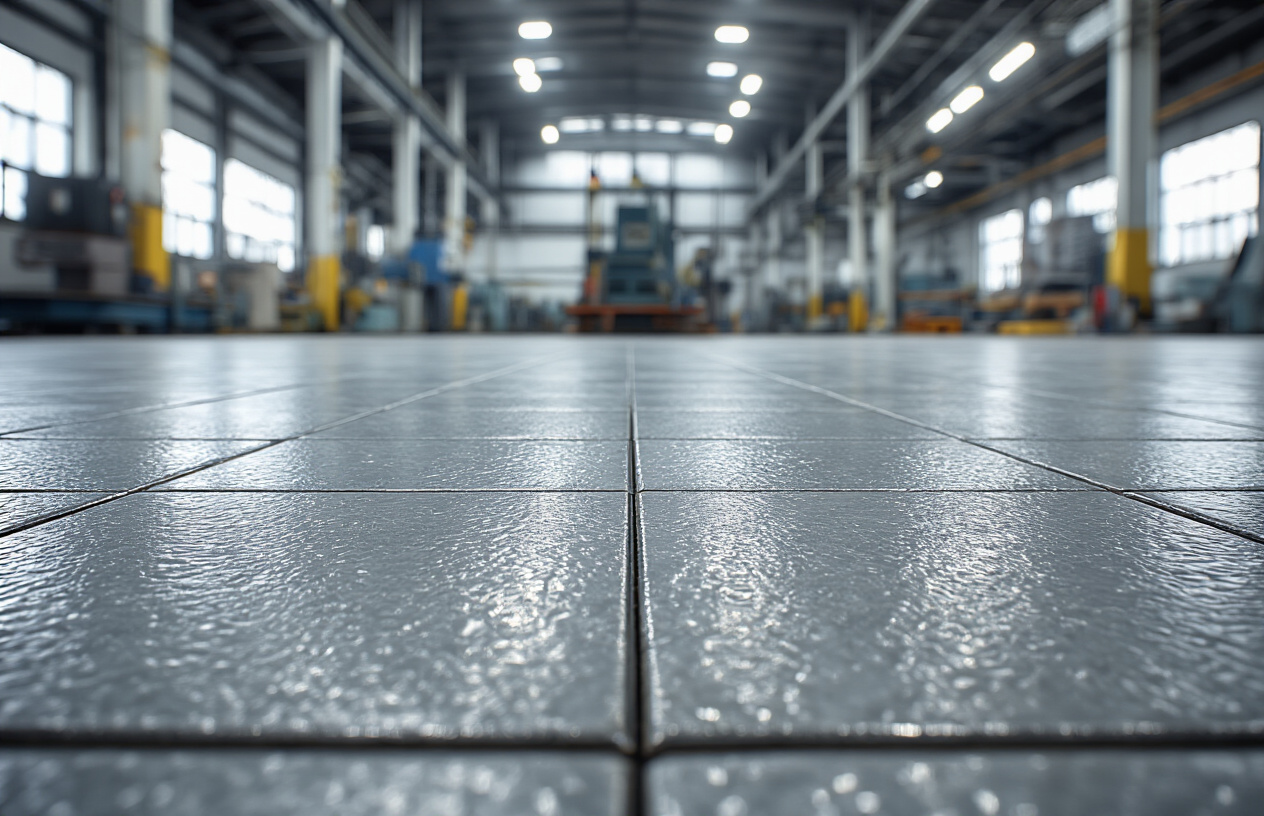
A. Composition and manufacturing process
Vinyl tile flooring isn’t just some random plastic slapped together. It’s built in layers—a wear layer on top, a printed design layer, and a tough backing. Manufacturers press these layers under heat until they fuse into a durable tile.
B. Durability in high-traffic industrial environments
Industrial spaces beat up flooring like nothing else. Vinyl tiles can take a punch, standing up to heavy foot traffic and equipment movement. But they’re not invincible—sharp objects and extreme weight can still damage them, unlike their rubber counterparts.
Rubber Flooring Advantages
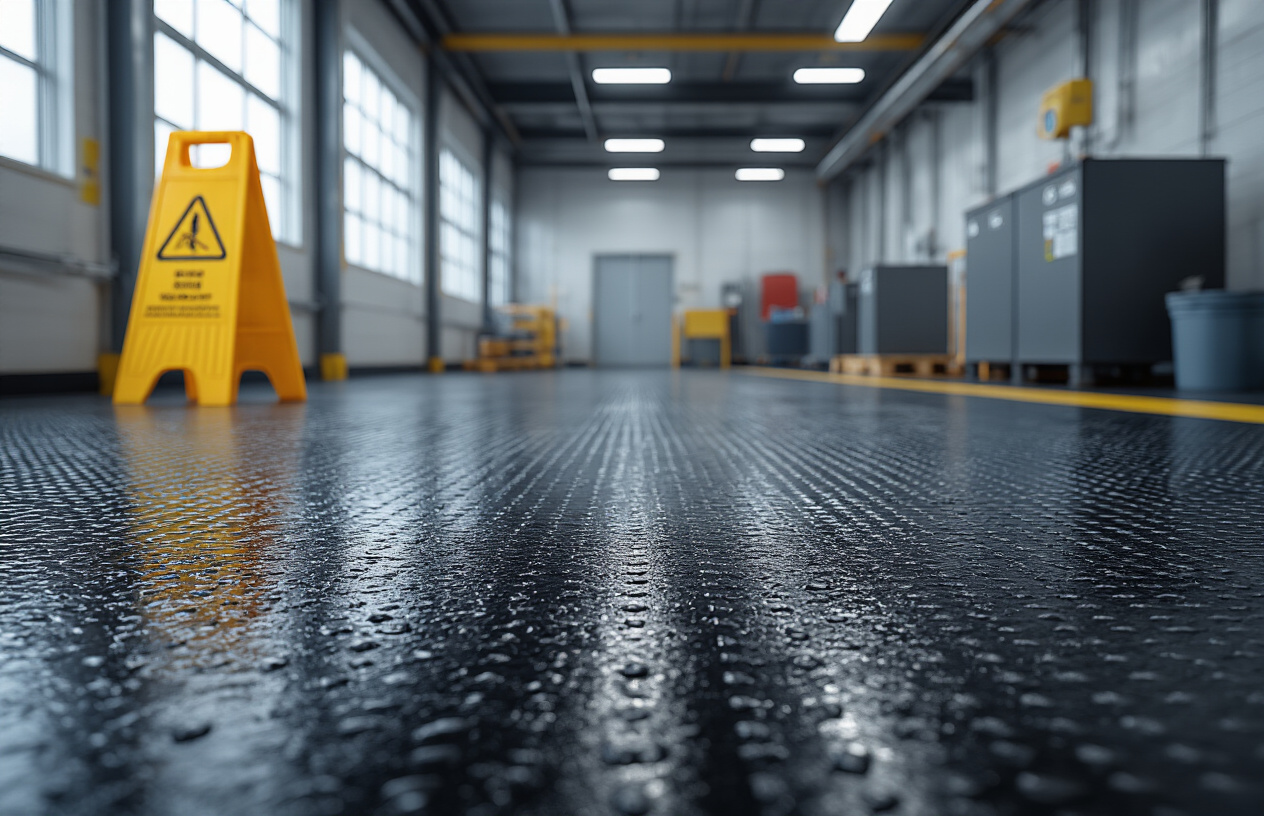
A. Superior shock absorption properties
Ever dropped a wrench on a hard floor? Rubber flooring takes that hit like a champ. It’s naturally bouncy and resilient, absorbing impacts that would normally stress your joints during long shifts. This isn’t just about comfort—it’s about reducing fatigue and preventing injuries when tools or heavy items take a tumble.
B. Noise reduction capabilities
The constant clang of industrial environments gets old fast. Rubber flooring dramatically cuts down noise levels by absorbing sound waves instead of reflecting them. Think about how much quieter footsteps, rolling carts, and dropped items become. Your workers’ ears will thank you, and communication becomes easier without all that background racket.
Comparative Performance Analysis
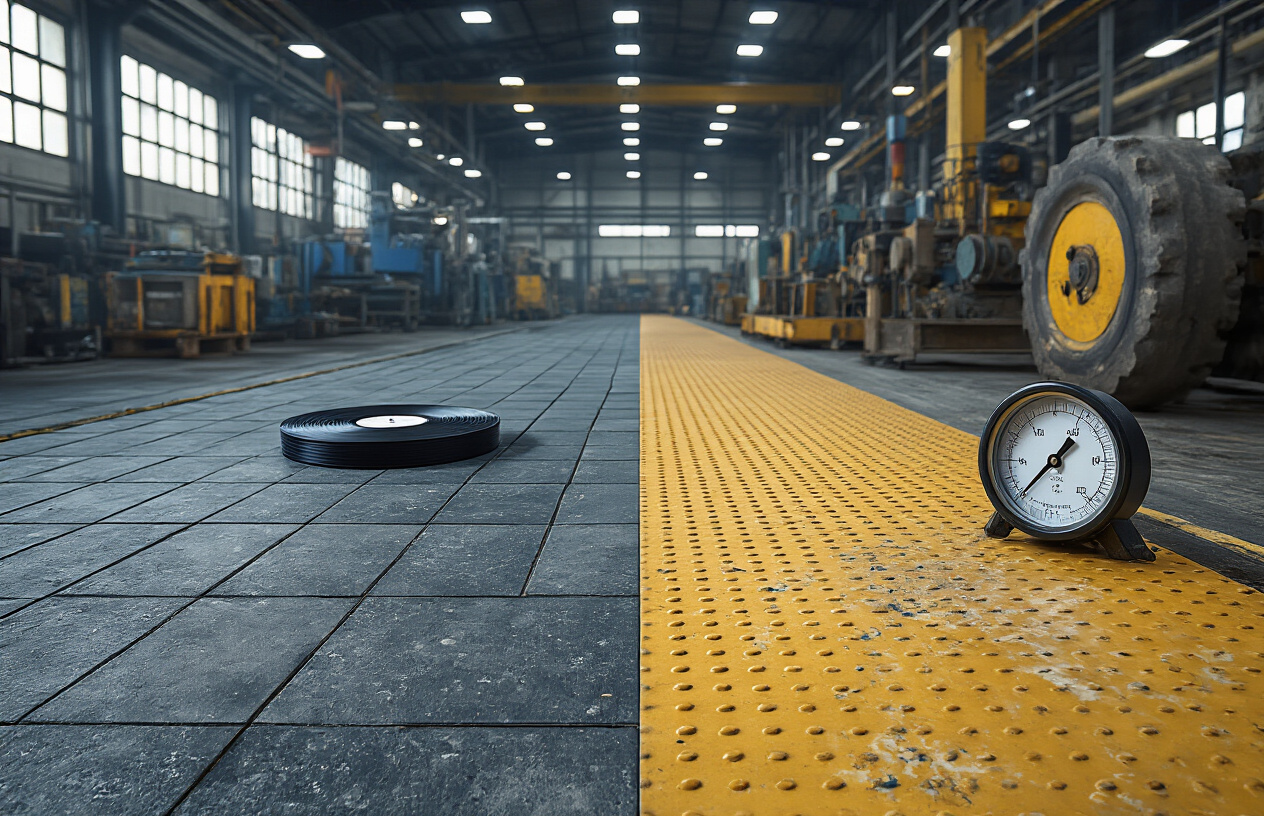
A. Weight-bearing capacity comparison
Vinyl tile crumbles under heavy loads, plain and simple. Most commercial vinyl supports 250-500 pounds per square inch—adequate for standard equipment but not for massive industrial machinery. Rubber flooring crushes this limit, handling up to 1,000 PSI without breaking a sweat.
B. Resistance to heavy machinery and equipment
Ever dragged heavy equipment across vinyl? Those scratches never come out. Rubber absorbs impact and bounces back like nothing happened. In warehouses with constant forklift traffic, rubber outlasts vinyl by years, not months. The upfront cost pays for itself when you’re not replacing damaged sections every quarter.
Installation and maintenance
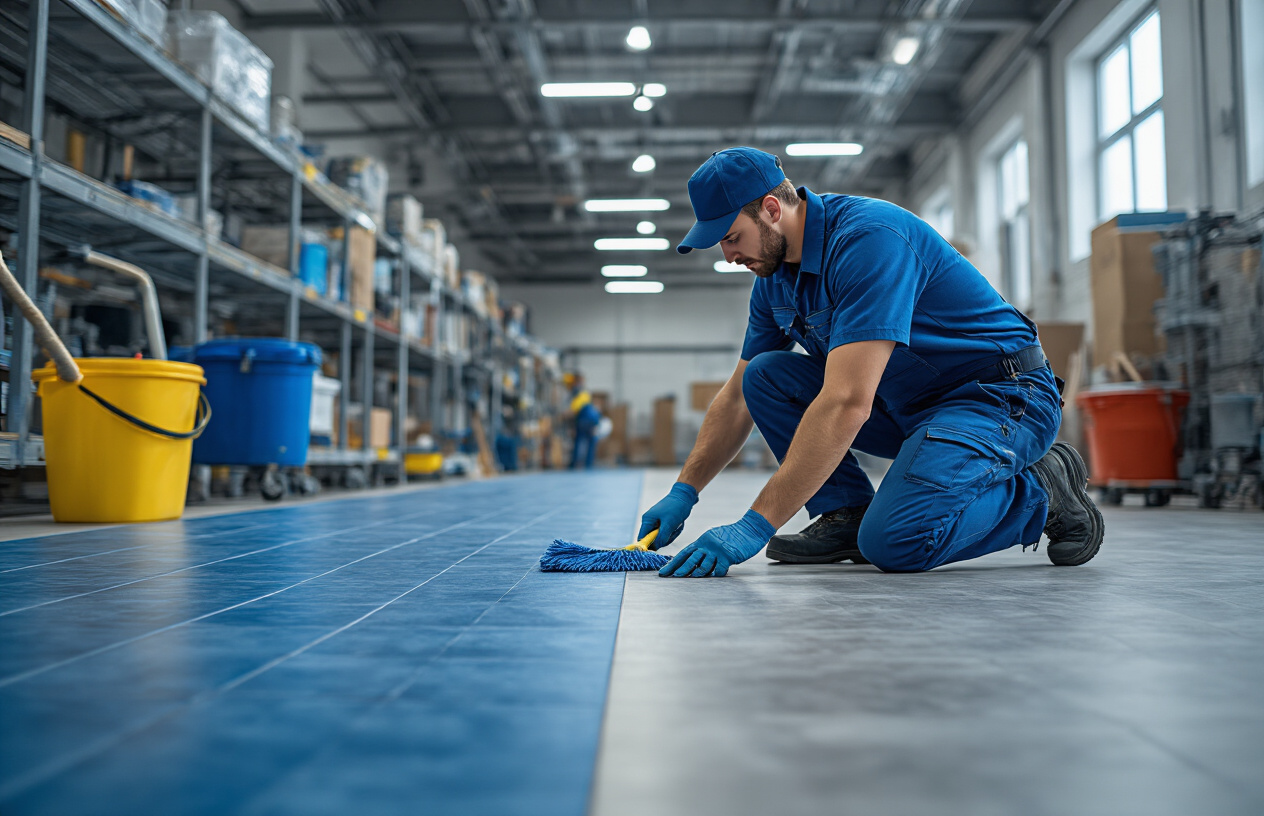
Installation Comparison
Vinyl tile installation is a breeze – just peel and stick or click-lock pieces together. No messy adhesives required for most options. Meanwhile, rubber flooring often needs professional installation with special adhesives that can get pretty pricey.
Maintenance Requirements
Rubber flooring wins the maintenance game hands down. Just sweep and mop occasionally. Vinyl requires more frequent cleaning and can scratch or dent under heavy equipment. Both options will last years with proper care, but rubber stands up better to industrial abuse.
Choosing between vinyl tile and rubber flooring for industrial workspaces requires careful consideration of your specific needs. Vinyl offers cost-effectiveness and design versatility, while rubber provides superior durability and excellent slip resistance. Both options have their distinct advantages in terms of installation requirements, maintenance demands, and performance under different industrial conditions.
The right flooring solution ultimately depends on your facility’s unique requirements – from foot traffic volume and exposure to chemicals to budget constraints and aesthetic preferences. Before making your decision, assess your workspace’s specific demands, consult with flooring professionals if needed, and consider how each option aligns with your long-term operational goals. With the proper selection, your industrial flooring will provide a safe, functional foundation for years to come.

